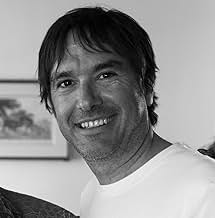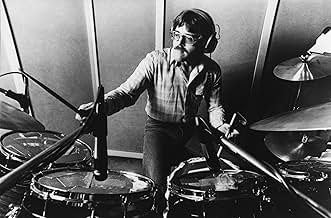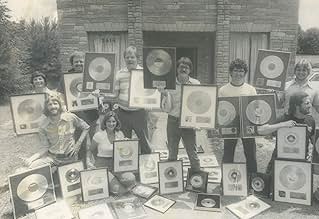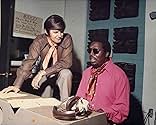Füge eine Handlung in deiner Sprache hinzuA documentary that celebrates Rick Hall, the founder of FAME Studios in Muscle Shoals, Alabama, and the signature sound he developed in songs such as "I'll Take You There", "Brown Sugar", an... Alles lesenA documentary that celebrates Rick Hall, the founder of FAME Studios in Muscle Shoals, Alabama, and the signature sound he developed in songs such as "I'll Take You There", "Brown Sugar", and "When a Man Loves a Woman".A documentary that celebrates Rick Hall, the founder of FAME Studios in Muscle Shoals, Alabama, and the signature sound he developed in songs such as "I'll Take You There", "Brown Sugar", and "When a Man Loves a Woman".
- Auszeichnungen
- 3 Gewinne & 11 Nominierungen insgesamt
Empfohlene Bewertungen
I grew up in the 70s, and occasionally heard about Muscle Shoals and the Swampers (they even got a mention in Lynyrd Skynyrd's "Sweet Home Alabama"). But even after turning to music as an avocation, I never learned the story of what made Muscle Shoals special. This documentary lays out the human side of the Muscle Shoals story in beautiful, often emotional detail.
At the heart of the story is Rick Hall, who grew up a dirt poor hillbilly in northern Alabama and had more than his share of tragedy and betrayal. Through sheer determination and a perfectionist's sensibility in the studio, he clawed his way to becoming one of the most consequential producers and studio owners of the 20th century.
Hall's original studio band, the Swampers, features as another "character" in the film. The Swampers became one of the most sought after back up bands in the 60s and 70s, and played on some of the most memorable hits of the era. What the viewer will find surprising is that these white country boys from northern Alabama backed some of the most soulful black music hits of the era.
The film also touches on the many musicians who recorded in Muscle Shoals, and features interviews with a number of them, including the Rolling Stones and Aretha Franklin. The film gives a little too much time to the Stones, and the film never really explains why Bono keeps popping up, but overall, considering who was still alive at the time, it strikes a good balance.
Then, of course, there is the music, itself. All I can say here is that you should watch this with a good sound system.
My only disappointment, and the reason I don't give it ten stars, is that we learn nothing about Rick Hall's engineering secrets. What did he do technically to bring about that special, warm, Muscle Shoals sound? I would have enjoyed learning more about that.
But that omission didn't detract from the film's emotional punch. Ultimately, this is a story about tragedy and triumph, friendship and betrayal, and the combination of music and emotion occasionally brought a tear to my eye. Highly recommended.
P.S. I saw one reviewer comment disparagingly about a clip of Lynyrd Skynyrd concert footage that showed a Confederate battle flag in the background. I don't know what the reviewer expected the filmmakers to do about that. The Confederate flag was used by more than one Southern rock band in the 70s and 80s, and it wouldn't have made sense to just erase that from the historical record, nor would it have been practical, from a filmmaking standpoint. One can debate over what it meant to people at the time, but it was what it was.
There was some tragedy in the story, and some element of conflict (such as when the studio players split from FAME studios and formed their own Muscle Shoals Sound Studio) but wisely the film concentrates on the music and the inspiring story of Rick Hall's rags-to-riches success and his work ethic, attitudes and musical philosophy.
If there's any weakness, it's some of the interviewees who trot out some fairly predictable platitudes: among them the tired/borderline racist "how could all that music be played by white guys!?" 'Cos, you know, white people have no soul or rhythm.
Ultimately, I was left wanting to know more, which is a good sign, although I think the film could have tried to get a bit more under the skin of what were the specific elements that resulted in this music coming out of this city, instead of pursuing a vague spiritual narrative of there just being "something in the water". Yes, there had to be some magic, and as romantic/poetic as that is, more robust information about the business side of just how Rick set up the studio, sold his first recordings etc. would have been great.
All in all a great documentary. Any music fan should enjoy this, but of course you don't need to be a music fan because at it's heart it's a fairy tale of achieving one's dreams through hard work, determination and a little bit of sacrifice.
If you are a fan of the music that started out in the '60s in this country, this is a must see. It gives you an insight into how the music we listen to has come into being. From the roots in the blues and R&B morphing into Rock and Roll. You may find something out about your favorite songs that you never knew.
The setting for the interviews focuses you on the person speaking. There are some amazing images in the film. In some ways it shows the area in an almost idyllic frame. The historical footage is worth the ticket price alone.
Bonus points if you actually recognize the unnamed blues legend show while they talk about Sam Phillips. If you are going to create a list of must see movies about music and musicians, this will be on the short list.
By the way, I have no idea why but this film, the Oscar-winning "20 Feet From Stardom" and "Sound City" all came out at about the same time---and ALL are very similar. So, if you like one, you probably would like to see the rest!
Wusstest du schon
- WissenswertesWinner of the Grand Prize, Boulder International Film Festival, 2013.
- Zitate
David Hood: When Duane came here, he was on the Wilson Pickett session that we did.
Jimmy Johnson: There was always a slight problem when we would go out, all of us white boys with a black artist, that we'd get looks, okay? But there was nothing as bad as going out with a long-haired hippie with us white boys. They couldn't stand that, right? And so both of them stayed back.
Gregg Allman: So, they went on lunch break and my brother went up to Wilson and he said, uh, "Man, why don't you cut 'Hey Jude', you know, that Beatles song?"
Wilson Pickett: And at that point, I was mostly trying to create an original career Wilson Pickett, right? My songs.
Rick Hall: Pickett and I, in unison, both said "Look, are you crazy? We're gonna cover the Beatles?" And, of course, Duane said "Exactly."
Jimmy Johnson: While we were gone, Duane changed our whole session. When you get to the vamp, it goes into just an unbelievable groove. Duane Allman was playing such great guitar fills that something happened in that vamp. And all of a sudden, there was southern rock. That was the beginnings of the Allman Brother Band.
- Crazy CreditsAlthough Steve Winwood is feature prominently, including with on-screen name identification, hie name is NOT listed in the end credits.
- VerbindungenFeatures Gimme Shelter (1970)
- SoundtracksLand of 1,000 Dances
Written by Chris Kenner
Performed by Wilson Pickett
Courtesy of Atlantic Recording Corp/Rhino Entertainment Company
By arrangement with Warner Music Group Film & TV Licensing
Top-Auswahl
- How long is Muscle Shoals?Powered by Alexa
Details
- Erscheinungsdatum
- Herkunftsland
- Offizielle Standorte
- Sprache
- Auch bekannt als
- Studio Muscle Shoals
- Drehorte
- Produktionsfirma
- Weitere beteiligte Unternehmen bei IMDbPro anzeigen
Box Office
- Bruttoertrag in den USA und Kanada
- 696.241 $
- Eröffnungswochenende in den USA und in Kanada
- 13.901 $
- 29. Sept. 2013
- Weltweiter Bruttoertrag
- 709.415 $
- Laufzeit1 Stunde 51 Minuten
- Farbe
Zu dieser Seite beitragen

































